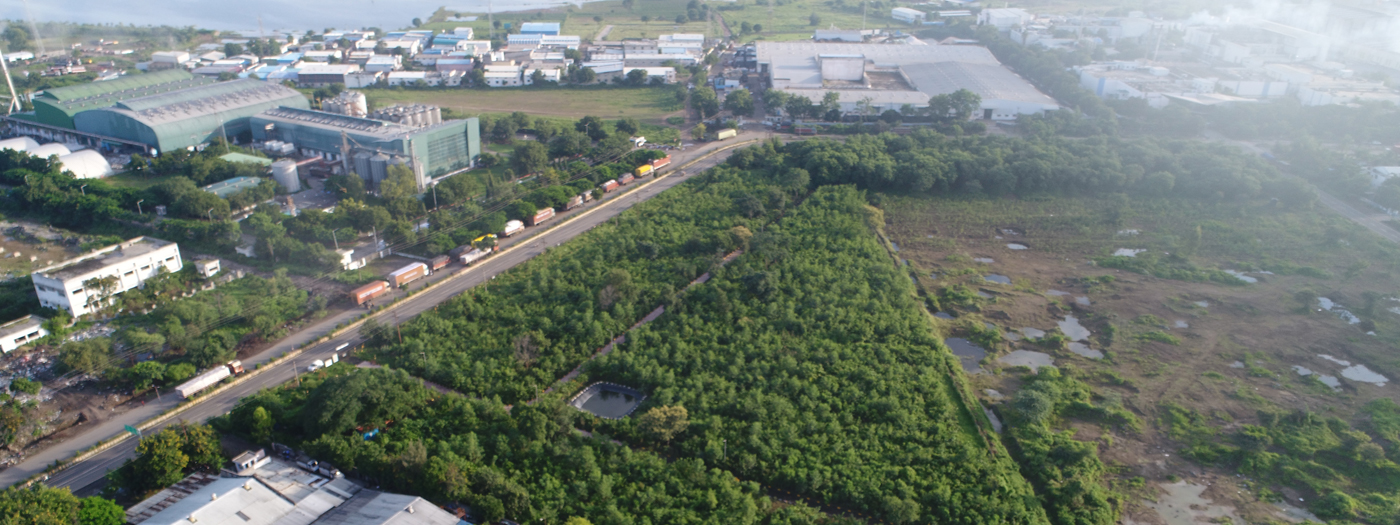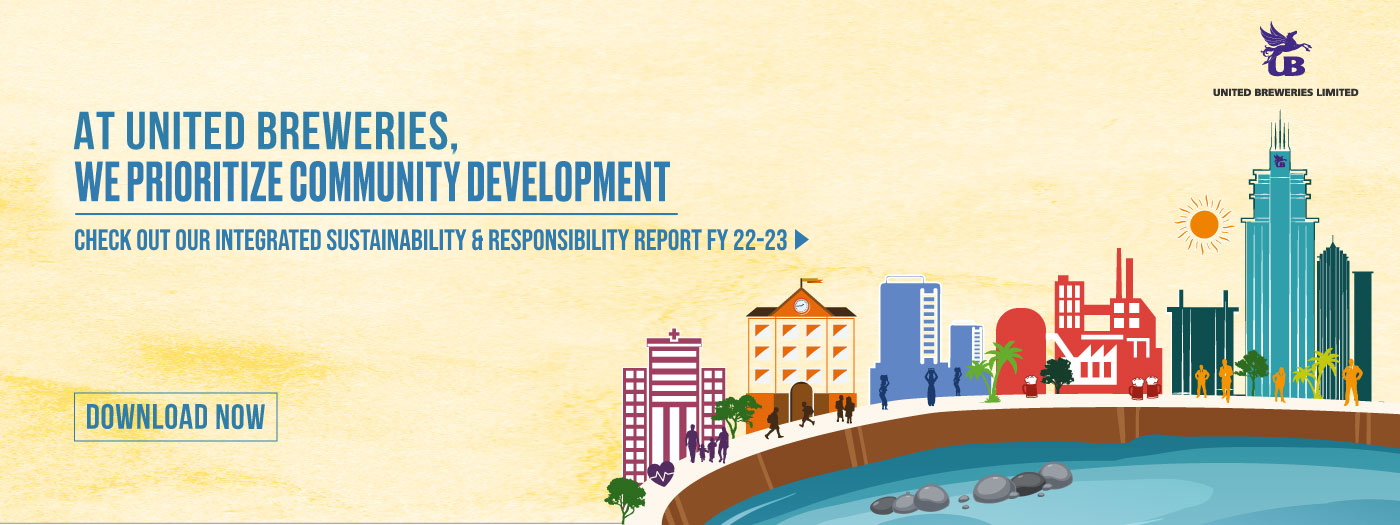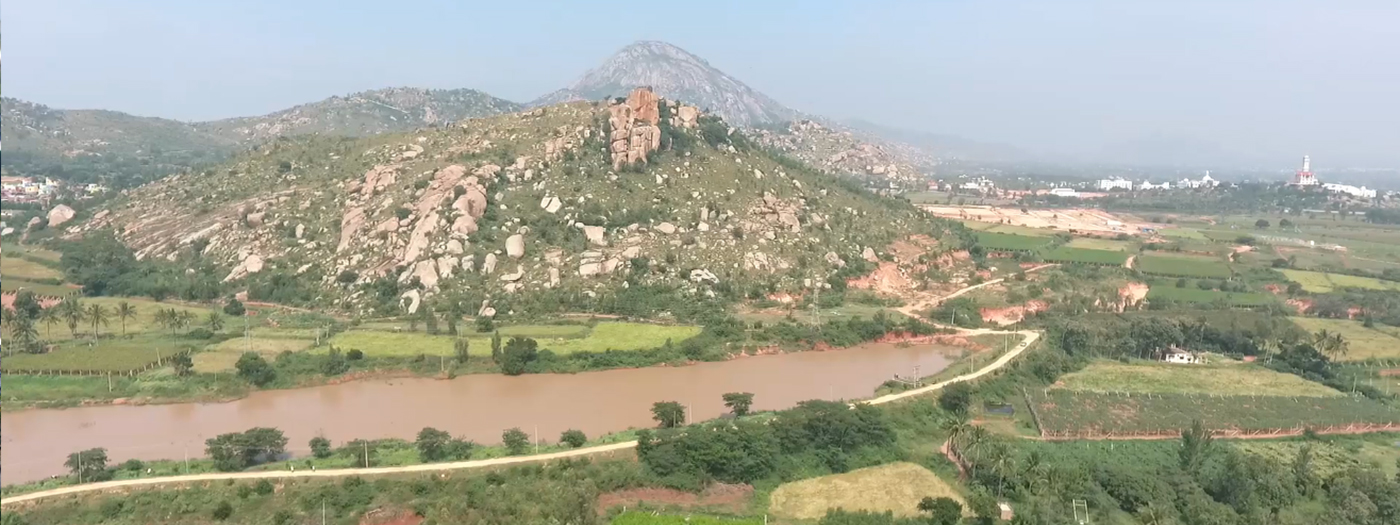 Spreading Cheer
Spreading CheerWater
Safe Drinking Water & Water Conservation, Telangana
Padmavathi Venkatareddy is a marginal farmer of Gunthapalli village...
Read More
Water Conservation, Maharashtra
Lawki, a hamlet of Kasoda village in Aurangabad had been...
Read More
Water
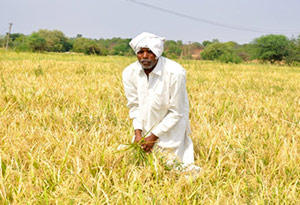
SAFE DRINKING WATER AND WATER CONSERVATION, Telangana
Padmavathi Venkatareddy is a marginal farmer of Gunthapalli village in Medak District who owns a small piece of land adjacent to the water plant. Like many other farmers in the village, he was unable to manage his household expenses with agriculture. The prevailing draught conditions and reducing water level in the bore well was drastically affecting the yield from his land. Faced with adversities, he was considering an alternate livelihood. One day, it struck him that the waste water drained from the water plant newly established by UBL in his village, is let out to the drainage without any use. He thought that the water could be diverted to his field to save the crop this year. Spending his own labour for one day, he dug a small canal diverting the waste water from the water plant to his field. Unlike the other villages, the water source is not the ground water in Gunthapalli. It is the water seeping from the hills and collected in the well, the only water source for the entire village which was created by UBL. The water in the well does not possess any minerals or chemicals dangerous for health and hence it has become a source of water for Venkatareddy. He got a record yield of 35 bags of paddy this year. He offers prayers to the water plant every day before he enters into his field just like they do to God in temples. For him God is in the form of the UBL water plant.
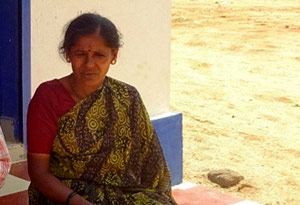
SAFE DRINKING WATER, Karnataka
Jayamma is a 45 year old woman who lives with her family of 5 in Veerananjipura. Even though she understood that the water from the tap is not good for health, she had no option but to consume it. She was unable to travel to the neighbouring villages to fetch purified water and even her sons had no time as they left early for work. She would boil the water that was available. However, the consumption of gas went up considerably. There were times when she had to fetch water from Nelamangala, at a distance of about 4 km for which she had to pay about INR 30 per can. All these expenses were adding up and the financial burden of basic needs was rising. With the introduction of the RO water plant in her village, she not only has access to clean drinking water, she even volunteered to run the plant.
“Paying INR 5 for 20 litres of pure water from the RO plant is nothing compared to paying a rupee for a small pouch of water. Ever since the RO plant has become functional, I regularly take 3-4 cans of water in a week. Now I use clean water for drinking as well as cooking. ?
- Jayamma, Veerananjipura
SAFE DRINKING WATER, Maharashtra
The life of any house wife in Ramraiwadi is almost the same; the routine activities of waking up early, cleaning the house, cooking food and taking care of other chores. The male members are mostly employed with the nearby industries. Chandrakala's life also follows the same pattern, her husband works in a press and her son works in a company. The only difference between she and the other women in her village is that whenever she gets free time, she goes to other villagers' houses and discusses about clean water, health and their correlation. This transition happened over time. During the lean season, the family got water from MIDC which they stored in traditional matkis (earthen pots) and used it for cooking and drinking. The water was there but so were the health problems. They were surprised to learn that the water they were consuming was the reason behind the majority of their health complications. They had to spend nearly INR 500 on every visit to hospital as the children suffered from vomiting, dysentery and stomach pain. The medical expense was too much for her family whose monthly income was around INR 7,000. The other villagers faced the same plight.
It was during this time that United Breweries and Dilasa Janvikas Pratishthan visited the village and carried out awareness campaigns regarding the problems of unsafe drinking water.
“Janseva (serving the people) is one thing which I have always liked doing, so when the Dilasa representatives came, I decided to help them in implementing the project. If there is a chance to get clean water, why let go of it? ? asks Chandrakala.
Chandrakala has since become the resource person for her village. She helped and guided the entire team in spreading awareness. Her enthusiasm in the project has been an inspiration for other women. She was reminiscent of what it was like before the introduction of the water purifier;
“Those were terrible times, it was like we had water but it was as good as it not being there. We could not use it. It would smell bad and was yellowish in color. We got diseases also. At the same time we could not even live without water. Now it's quite good, we still use the MIDC water, but we fill it in the purifier first. It is clear and does not smell at all. ?
She sends her grandchildren to school with water bottles filled with safe and clean water as the water available in the school is not of good quality. She makes sure that the filter and purifier is regularly washed and kept clean. Chandrakala asserts that none of this would have been possible without the UB project. She is forever thankful for this project and is still actively involved in mobilising the village women. The success of this project in Ramraiwadi would never have been possible without the efforts of Chandrakala, who even though may seem like doing nothing different from other housewives, did an exceptional job of mobilising the people and spreading the thought of “Clean water, Safe water. ?
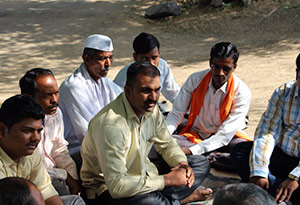
WATER CONSERVATION, Maharashtra
Lawki, a hamlet of Kasoda village in Aurangabad had been reeling under the effect of water scarcity and the availability of water had been a challenge after January till the monsoons. A majority of the villagers were dependant on the sale of agricultural produce and milk for an income.
Agriculture was mostly restricted to the Kharif season. With villagers just about managing to source drinking water, cultivating twice a year was a distant dream for them. Lawki being a hamlet, did not even have a water tanker coming which was otherwise available for Kasoda.
“During the summer months, we had to ration whatever water was available. We had no water tanker coming into our basti. In the last year, before the cement nallah bund, not a single farmer cultivated in the Rabi season and there was hardly any water left for the cotton ?
Nanasahib Mati, Farmer, Lawki Village
The cattle feed that the villagers grew was reduced as a result of which many villagers were forced to give away their cattle as they could not afford to buy the cattle feed. A village of 300 households, every family was struggling for water.
In partnership with Dilasa, an NGO, UBL constructed a cement nallah bund to hold the water and help increase the percolation. As a result, the water level in the 15 wells has increased and the 12 bore wells that had run dry now pump water again. Even during the summer months, the village now has sufficient water for personal consumption as well as a second crop. Around 150 acres of land around the cement nallah bund now has sufficient water for the second crop.


